Issue 59 : 12 July 2020
Talofa Lava, Kia Orana, Malo E Leilei, Tena Koutou, Hello ...
... and welcome to the latest issue of “For The Love Of The Game”, the official e-zine of the New Zealand Amateur Sport Association Inc. We hope you enjoy reading the articles below.
If you have any feedback on this issue, ideas for future articles, or would like to contact the Editor, please click here. And, you are invited to forward the e-zine to others you know, who may be interested in reading it. An archive of earlier editions of the e-zine can be found here.
If you are interested in applying for membership of the Association, please click here.
Chairman Meets Minister ...
On Tuesday 7 July, Association Chairman, Gordon Noble-Campbell met with met with Sport & Recreation Minister Grant Robertson at the Beehive in Wellington, to discuss how the Association can support the Government’s goals in the recovery, growth and innovation of community sport for the benefit of all New Zealanders.

(Chairman, Gordon Noble-Campbell with Minister Grant Robertson, at the Beehive)
In a frank and friendly discussion, the Minister confirmed his support for the goals and objectives of the Association and that the Association has a role in working with Sport New Zealand to help develop the infrastructure and systems supporting community sport throughout the country. In particular, the Minister saw the Association as having an important voice for community sport in the area of innovation and the future development of community sport.
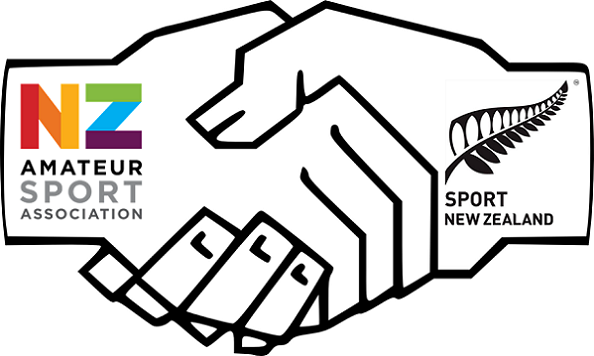
(The Minister endorses collaboration between the Association and Sport New Zealand)
Following the meeting, the Association has been in contact with Sport New Zealand to initiate a conversation around how best to collaborate in areas of mutual interest, for the benefit of organised community sport and sportspeople throughout the country.
From The CEO’s Desk ...
The Association commends the government on its latest funding announcement in support of grassroots amateur sport. However, it’s vital that this funding, particularly the Community Resilience and Activation Funds, are swiftly distributed into sport communities across Aotearoa New Zealand, so that amateur sports clubs and organisations have the ability to remain relevant and get back on their feet quickly.

(Will Caccia-Birch, "#amateursportforallnz")
More generally, It has been wonderful to see the sports fields, courts and gyms across the country humming again with participants of all ages and genders; and communities re-engaging - this is the power of community sport and a great antidote for the well-being of our communities.
We must continue to ensure that amateur sport remains viable for all New Zealand communities, both urban and rural, and that amateur sports clubs are able to attract engage and sustain memberships based on each participant’s and each community’s unique needs.
Viewpoint : It’s The “How” That Matters ...
Sam Seitz from Georgetown University in the United States observes that, “the problem with trickle-down economics is that it actually creates many of the problems capitalism seeks to avoid, by concentrating economic power in the hands of a very few, who then try to use their wealth to determine the direction of the economy.” When thinking of how the Government’s top-down funding package for community sport reaches its core taxpayer constituents, the pitfalls Seitz describes above are equally and acutely relevant.

(Taxpayer paid funding relief must be made easily available to all community participants)
Fair questions to ask those responsible for distributing central government funding include the following. What proportion of the total relief package will be absorbed by the layered infrastructure responsible for determining and distributing financial relief to community sport? What caveats or obligations will be placed on providing financial relief to community sports clubs? How will families experiencing financial hardship, who are members of community clubs receive financial support from relief funding?

(The future of community sport lies with the community, not in politics, or political agencies)
This Association believes that the future of community sport in a post COVID-19 world should be largely defined and designed by the volunteers and community groups currently responsible for its delivery. The values of community sport are not a matter for politics or government agencies to define. Rather, they are an expression of the individuals, families, businesses and cultures that co-exist in any given region of New Zealand, which use sport as a means to build-bridges for the physical, social and mental well-being of all.
Auckland’s Mayor Calls For A Review Of Sport Funding ...
TVNZ reports that there are calls for a review into how sport and recreation is funded, especially in Auckland, where there are concerns that the money being promised by central government isn't trickling down to where it's needed most.

Auckland’s Mayor Phil Goff says, "not everybody is funded in an equal way," Goff told TVNZ's 1 NEWS that, "there are popular sports to fund, there are others that don't get as much [and] I think a review would be helpful."
You can read the full story, here.
New Study Supports Voucher Incentives To Increase Participation ...
A new study published by BMC Public Health in the UK, has found that voucher incentive schemes can play an important role in improving access for children to organised community sport. Focusing on Australia, the report made the following important observations.
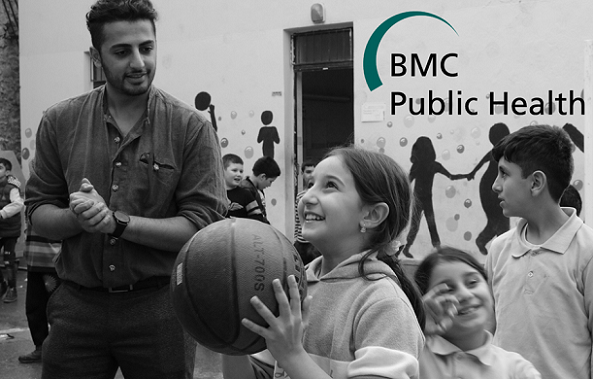
(Voucher incentive schemes play an important role in fostering amateur sport participation)
Sport which is typically organised and structured, and played individually or within a team has been reported to produce various psychological and social health benefits that exceeds other forms of leisure-time activity for children and adolescents.
Sports club participation in Australia has been found to contribute significantly to leisure-time activity, with clubs acting as the main avenue for both girls and boys under 15 years old to be active outside of the school environment.
Despite the potential benefits, only 20% of children participate in organised sport outside of school hours at least three times per week. Gender differences in participation are clear with boys most likely to continue to participate in sport throughout childhood, while girls often see the competitive element of sports as a barrier to participation.
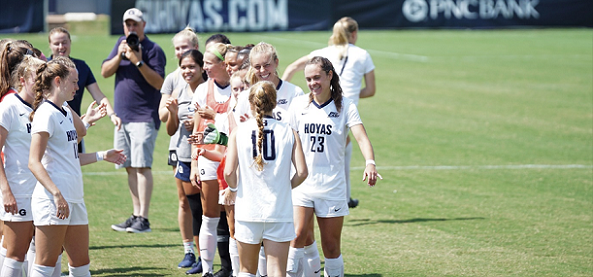
(Cost, accessibility, lack of parental support and a lack of local facilities are all obstacles)
The main barriers to participating in physical activity and structured sport amongst children and young people include cost, accessibility, lack of parental support and a lack of local facilities.
Associated with lower participation rates, families from the most disadvantaged areas are more substantially affected by these barriers. For example, families with low socio-economic status experience prohibitive costs associated with sporting registration, opportunities and equipment.
You can read the full report, by clicking here.
“You Can't Play Football Over Zoom” ...
The impact of social “lockdowns” (a word brought into common-use in the mid-1970’s in the US prison system to describe prisoners being kept in their cells) on community sport, has been well articulated in recent weeks. In light of the ongoing COVID-19 issues in Melbourne, last week, the Victorian Amateur Football Association finally cancelled its 2020 season.

(Melbourne’s latest “lockdown” has forced the cancellation of amateur AFL in Victoria)
The disappointment throughout the state of Victoria is widespread, with one media commentator noting that while technology enables people in enforced isolation to remain in contact, “there’s no virtual substitute for team contact sport.”
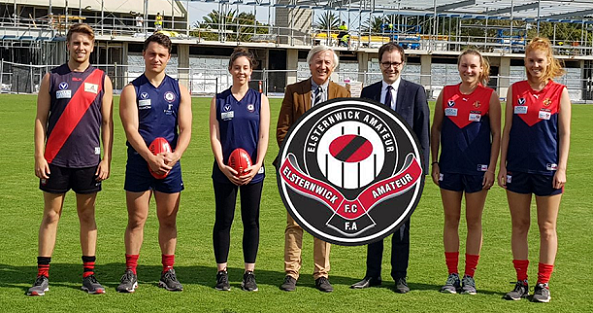
(Elsternwick AFC in Victoria, Australia offers sport to the entire community)
Stephanie Convery, from Elsternwick Amateur Football Club goes on to note that “clubs also tend to operate on very thin margins, subsisting on subscription payments from players and fundraising efforts throughout the season. When there are no games, there are no subs, but the electricity bills at the club house still need to be paid. And the restrictions on social activity coupled with the massive strain on businesses means a huge gulf in the space where fundraising opportunities used to be.”
You can read the full article on the community impact of AFL in Victoria, by clicking here.
2020 National Sport Club Survey ...
A reminder that the 2020 NSCS will be open from mid-August. This year, the themes of the NSCS are the aftermath of initial COVID-19 lockdown, as well as sport club innovation and resilience. Every sport club in New Zealand is invited to participate. As in 2019, key sponsor Dynasty Sport will be offering a $500 credit toward the purchase of sporting apparel to a survey participant selected in the survey's "Prize Draw" for participants.

If you would like to ensure that your club is invited to participate, please click here.
From The Archives ...
All Sorts of People
FREE LANCE, VOLUME V, ISSUE 232, 10 DECEMBER 1904
“A man of gentlemanly exterior and wide knowledge, and still in the prime of life, he is well-known, in the public life of the City of the Plains, for he has been three times mayor of Sydenham. His watchword is "co-operation" and he means by it the co-operation of employers and employed, and not co-operative enmity and divided camps. Mr Booth has, among his valued possessions the first championship swimming cup ever won in the colony. This he gathered in twenty years ago. The son of one of the pioneer Canterbury settlers, he has helped to build up the business that is today the second largest of its kind in the colony.”
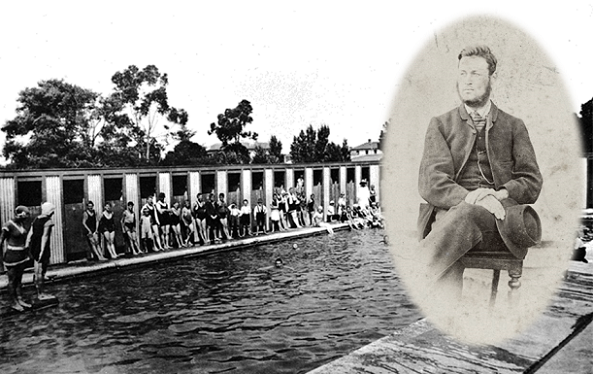
(George Booth, pictured above, was a New Zealand champion swimmer in the 19th century)
George Thomas Booth was born in 1858 in Sunderland, England emigrating to New Zealand as a child. He attended Christchurch Boys’ High School and Canterbury College (the forerunner to the current Canterbury University) and became the founder of Booth, McDonald and Co. which manufactured agricultural implements, including storm-proof iron-windmills.
As a member of the Christchurch Swimming Club during the 1880’s and 1890’s, Booth was considered one of the best breaststroke swimmers of his time. “He had a fine physique, and it was not until the introduction of the over-arm stroke that he was surpassed in speed."
He was also a diver of some reknown and gave many excellent displays of diving at the West Christchurch baths, the then headquarters of the Christchurch Swimming Club. In 1884, he won the Canterbury “plunging” competition with a distance of 30 feet, 7 inches, (which was 19 inches ahead of the nearest competitor).
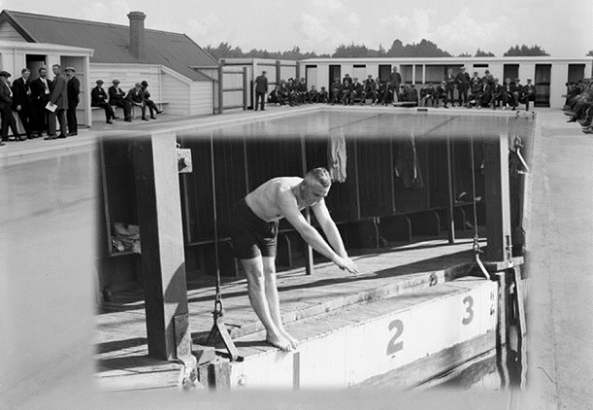
(“Plunging” was an Olympic sport in the early 20th century)
“Plunging” which temporarily became an Olympic discipline in 1904, was to "dive from a stationary take-off which is free from spring from a height of 18 inches above the water. Upon reaching the water the plunger glided face downward for a period of 60 seconds, without imparting any propulsion to the body from the arms and legs." In the same year, Booth covered 100 yards in 82 seconds, which was the fastest time over that distance recorded in New Zealand that year.
Booth promoted the membership of women in the Christchurch Swimming Club and by 1885 was credited with having attracted 20 of the 70 to 80 members of the Club. Booth went on to become a member of the Council of the New Zealand Amateur Swimming Association in the 1890’s. He was also a keen rowing enthusiast. A former Mayor of Sydenham and Life Member of the Canterbury Chamber of Commerce, Booth died in 1942 at the age of 84, with the press noting that he was, “a keen reader and possessed a comprehensive library”.
The Final Word ...
“It’s hard to overstate just how much of a back-bone amateur sport still gives a community.”
(Stephanie Covery, Elsternwick Football Club)